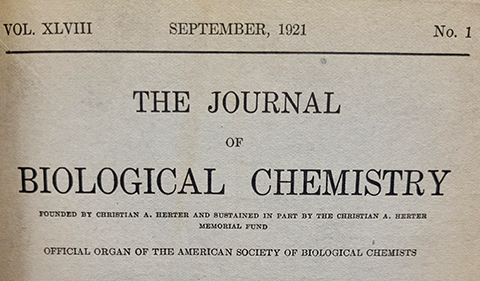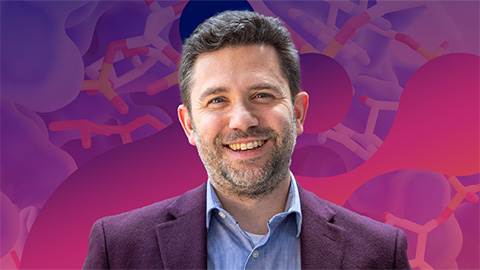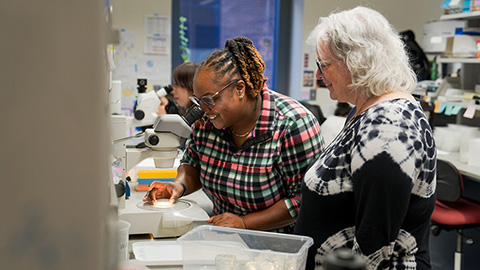Ten interesting quotes from the JBC archives
The first issue of the Journal of Biological Chemistry was published in October 1905. As a gold open-access publication, JBC has made every article published since then freely available to the public. By navigating to Past Issues, anyone can explore the vast scientific history preserved in those volumes.
In the older papers, archaic quirks like spelling “protein” as “proteid” remain, but also entire biological concepts, including the brain-derived protagon, that have long been abandoned. Some show flashes of ideas that later grew into their own fields, and others show that some things never change.

A good number of the articles are surprising, interesting or amusing, which inspired this collection of quotes.
1. Supplee and Dow, 1927. Vitamin A potency of irradiated milk.
“Drummond has likewise pointed out the possibilities of vitamin A destruction in irradiated milk, and he also calls attention to the fact that important, and presumably unfavorable changes are brought about by irradiation as manifested by the fact that milk exposed for as short a time as 5 minutes is highly unpalatable.”
2. Folin, Denis and Smillie, 1914. Some observations on “emotional glycosuria” in man.
“From Dr. Earl D. Bond we have received the report of 664 consecutive urine examinations made at the Danvers State Hospital for the Insane.”
3. Fales, 1922. An analysis of camel’s colostrum.
“Since reports of analyses of milks, other than those of the cow and goat, are none too plentiful it seems of possible value to have a published record of this analysis.”
“From these experiments we conclude that the beneficial action of ultra-violet light in preventing rickets in chickens is due to its direct action on the chickens and not the changes which it produces in the air the chickens breathe.”
5. Osborne and Mendel, 1913. The influence of butter-fat on growth.
“The striking way in which butter, thus supplied, influenced the growth of these young rats made it evident that it furnishes some substance which exerts a marked influence on growth.”
6. McCollum et al., 1918. The dietary properties of the potato.
“This [favorability of the potato as food] has been attributed, and probably correctly, to the lack of flavor in the potato, which makes it possible to confer palatability upon it by the addition of milk, butter, cream, salt and pepper, or by frying in fats.”
7. Abderhalden, 1913. Comments on the communications of Folin and Denis.
“I have reluctantly referred to this matter since the form and tone of Folin and Denis’s objections might wrongly give rise to the impressions that our criticisms were not made in the most amicable and impersonal spirit.”
8. Warner and Edmond, 1918. Blood fat in fowls.
“There is, however, another and more important reason for not seriously considering the results of their experiments. A casual examination of the following table from their paper suggests to our minds that the work does not fulfill the requirements for carefully controlled experimental study.”
9. Crowdle and Sherwin, 1922. The chemical defence mechanism of the fowl.
“Detoxication processes in the organism of the fowl have thus far received but little attention, due no doubt, in part at least, to the disagreeable features of a mixture of urine and feces.”
10. Wang, 1921. The composition of Chinese edible birds’ nests and the nature of their proteins.
“The material used for this work was supplied by the Hoo Loong Edible Birds’ Nest Store, Chicago, which imported it directly from China.”
Enjoy reading ASBMB Today?
Become a member to receive the print edition four times a year and the digital edition monthly.
Learn moreGet the latest from ASBMB Today
Enter your email address, and we’ll send you a weekly email with recent articles, interviews and more.
Latest in Science
Science highlights or most popular articles

Life in four dimensions: When biology outpaces the brain
Nobel laureate Eric Betzig will discuss his research on information transfer in biology from proteins to organisms at the 2026 ASBMB Annual Meeting.

Fasting, fat and the molecular switches that keep us alive
Nutritional biochemist and JLR AE Sander Kersten has spent decades uncovering how the body adapts to fasting. His discoveries on lipid metabolism and gene regulation reveal how our ancient survival mechanisms may hold keys to modern metabolic health.

Redefining excellence to drive equity and innovation
Donita Brady will receive the ASBMB Ruth Kirschstein Award for Maximizing Access in Science at the ASBMB Annual Meeting, March 7–10, just outside of Washington, D.C.

Mining microbes for rare earth solutions
Joseph Cotruvo, Jr., will receive the ASBMB Mildred Cohn Young Investigator Award at the ASBMB Annual Meeting, March 7–10, just outside of Washington, D.C.

Fueling healthier aging, connecting metabolism stress and time
Biochemist Melanie McReynolds investigates how metabolism and stress shape the aging process. Her research on NAD+, a molecule central to cellular energy, reveals how maintaining its balance could promote healthier, longer lives.

Mapping proteins, one side chain at a time
Roland Dunbrack Jr. will receive the ASBMB DeLano Award for Computational Biosciences at the ASBMB Annual Meeting, March 7–10, just outside of Washington, D.C.

